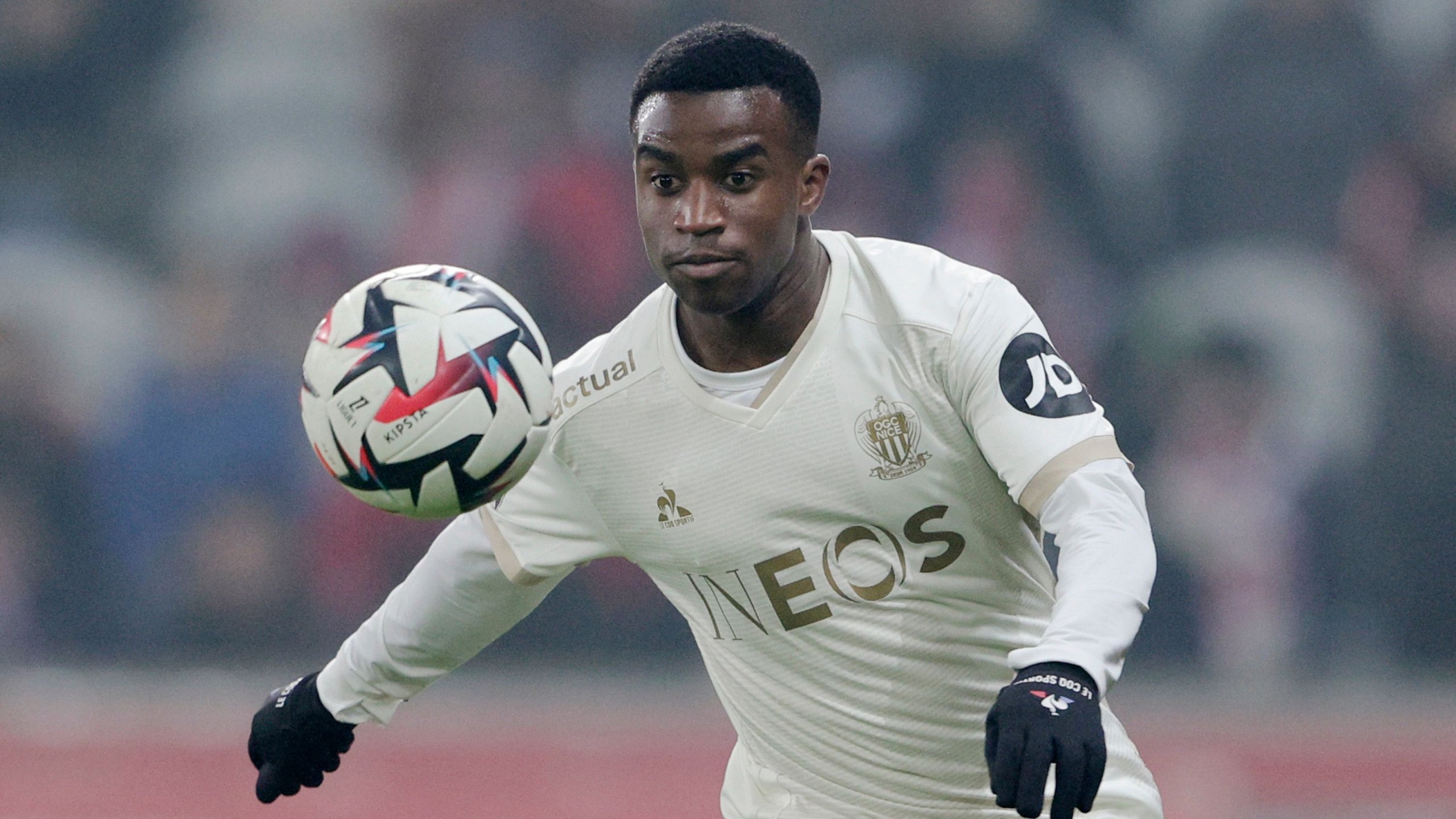Youssoufa Moukoko Details Struggles Before Copenhagen Switch
Youssoufa Moukoko has felt the extremes of professional football. The 19-year-old striker, once hailed as Borussia Dortmund’s next superstar, admits he “sat there brooding” as minutes became scarce in Germany, criticism piled up during a loan spell at Nice, and self-belief wavered before a surprise transfer to FC Copenhagen.
Youssoufa Moukoko recalls the dizzying Borussia Dortmund rise
Moukoko’s story began in 2020 when he smashed Bundesliga age records, scoring on his 16th birthday and drawing worldwide headlines. In those early months, the primary focus keyword Youssoufa Moukoko appeared on every back-page, and comparisons with Erling Haaland seemed inevitable. Dortmund’s famed Yellow Wall sang his name, pundits praised his movement, and scouts jotted glowing reports. But rapid breakthroughs often hide lurking challenges.
The promise and the pressure
Dortmund’s academy regularly promotes prodigies, yet even by that standard Moukoko developed at breakneck speed. He jumped from U-17 to senior football in a single year, skipping the usual physical maturing phase. “I felt on top of the world, but I also felt alone,” he acknowledges now. Every miss, every training knock, was magnified on social media. Coaches urged patience; fans demanded goals.
From Bundesliga benches to Nice’s sidelines
When opportunities dried up at Signal Iduna Park last season—Haller returned from illness, Füllkrug arrived, Adeyemi rediscovered form—Youssoufa Moukoko accepted a loan to OGC Nice, seeking rhythm in Ligue 1. The move, however, became another lesson in adversity. He managed just 275 minutes, primarily off the bench, and French media questioned his work rate. “People thought I was sulking,” the forward says, “but I was fighting a mental battle none of them saw.”
Isolation away from home
Living on the Côte d’Azur sounds idyllic, yet for an adolescent who grew up in Hamburg’s St. Pauli district, the language barrier and cultural shift were stark. Moukoko often trained, returned to an empty apartment, and scrolled through highlight reels of the matches he hadn’t played. In a recent podcast, he revealed nights of self-doubt: “I told myself, if you can survive this, you can survive anything.”
Why Copenhagen? A calculated detour
Many expected a return to Borussia Dortmund or another Bundesliga loan, but FC Copenhagen swooped in, convincing the striker of their sporting project. Director Peter Christiansen described Moukoko as “our missing attacking piece,” promising regular starts in both the Danish Superliga and Champions League qualifiers.
Style of play suits the teenager
Copenhagen deploy a high-tempo 4-3-3 with wingers whipping low crosses across the six-yard box—ammo perfectly tailored for a poacher like Youssoufa Moukoko. The Danish champions also boast a track record of polishing talents such as Mohamed Daramy and Jens Stage before lucrative moves abroad.
Copenhagen’s dressing-room environment
Veterans Viktor Claesson and Kevin Diks are reputed mentors. Moukoko said he spoke to them by phone before signing: “They stressed togetherness over everything. That convinced me.” A smaller media market than Germany or France could shield him from invasive scrutiny, allowing focus on football.
‘I felt life at the top and bottom’ – candid reflections
The phrase has become Moukoko’s unofficial mantra. He recalls Champions League nights versus Manchester City and then, months later, warming Nice’s bench in domestic cup ties. “Football humbles you quickly,” he notes. “I was called a wonderkid, then a waste of talent. Truth is usually in the middle.” Sports psychologists say such pendulum swings can derail young players; accepting volatility is crucial.
Defending himself amid criticism
While online detractors claimed his attitude was poor, staff at Nice and Dortmund refute that narrative. Fitness coach Laurent Bessière confirmed Moukoko was “first to arrive, last to leave” training. For the Germany U-21 side, he scored four goals in five qualifiers, silencing doubters temporarily. Still, national-team boss Antonio Di Salvo warned: “He needs a stable club environment.” Copenhagen may now provide that.
The road ahead for Youssoufa Moukoko
Dortmund inserted a buy-back clause, signaling they have not given up on their academy jewel. If he hits double figures in Denmark, a return to the Bundesliga remains plausible. Alternatively, Copenhagen could exercise their option to buy and sell at profit, mirroring the pathway of Jonas Wind.
Key milestones to watch
1. Superliga debut at Parken Stadium – expected versus Brøndby in August.
2. Champions League third-round qualifier – a potential showcase in front of European scouts.
3. Germany’s Olympic squad selection – a strong Superliga start could book him a ticket to Paris.
What success would look like
Moukoko lists three personal goals: consistent starting time, double-digit goals, and rediscovering the joy he felt as a 12-year-old scoring freely in youth leagues. For Copenhagen, success means group-stage qualification and eventual financial return on their investment. For Dortmund, it’s about their asset gaining value away from Westfalenstadion.
Primary focus keyword spotlight: Youssoufa Moukoko’s mentality shift
Sports psychiatrists highlight self-talk patterns; Moukoko’s acceptance of highs and lows suggests growing maturity. He meditates daily, works with a mental coach, and limits social media exposure on match days. By speaking openly about “brooding” periods, he challenges stereotypes that young footballers lead carefree lives of wealth and glamour.
The striker’s message to other youngsters
“Listen to criticism, but don’t let it define you,” he advises. “I’ve learned more from the bench than from scoring hat-tricks.” Such honesty could inspire academy players grappling with similar transitions.
Opinion: Why this can be the making of him
Youssoufa Moukoko’s decision to trade Europe’s grand stages for the relative calm of Denmark mirrors Robert Lewandowski’s early move from Poland to Borussia Dortmund or Erling Haaland’s leap from Molde to Salzburg. Regular football, supportive coaching, and reduced glare often forge resilience that pure talent cannot. If Copenhagen allow him to reset, the Bundesliga—and perhaps bigger leagues—may soon witness a sharper, wiser version of the striker once pegged as Germany’s next great No. 9.
Your global gateway to nonstop football coverage:
News Goal
Share this content:

